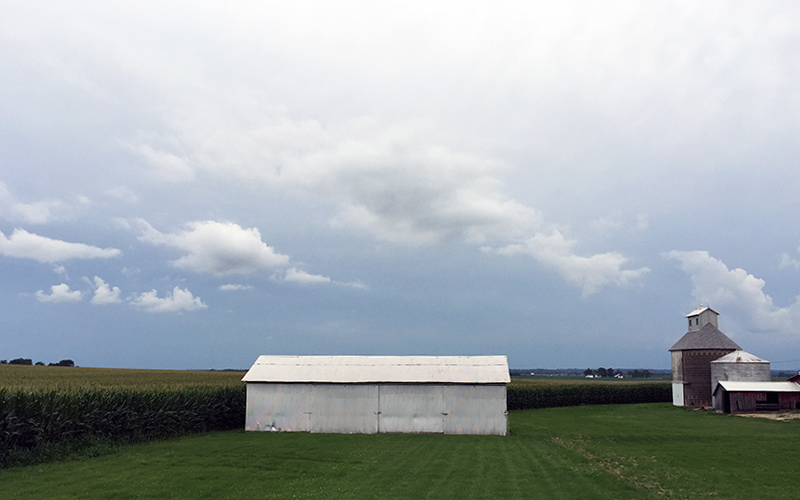
by Maria Rodale and Kimbal Musk, who recently visited Iowa together and wrote the following for The Des Moines Register:
At this moment in time, American consumer demand for organic foods far exceeds the supply. Though the organic sector is a $39.1 billion market with an annual growth rate of 10 percent (the fastest-growing sector of the food industry), American food companies and supermarkets attempting to meet the demand for organic are increasingly looking overseas to find organic food suppliers.
Why are American farmers resistant to becoming organic farmers—even just as a sound business choice, leaving philosophy aside? A growing body of research demonstrates that organic agriculture works, both in terms of annual output and long-term productivity as well as a viable, scalable business model. Organic farmers currently earn more—a “premium”—when they sell certified organic crops; though labor costs increase as chemical inputs decrease, the two systems—organic and conventional—would remain equally profitable even if the price advantage becomes much lower than what it is today.
Organic farming supports healthier soil and in turn the health of the people who farm and eat the food that is produced. And, according to a recent white paper published by the Rodale Institute, regenerative methods of organic agriculture can sequester carbon emissions, thereby helping to reduce the greenhouse effect. But these factors aside, there are other cultural, business, and emotional factors at stake that make it challenging for farmers to switch to organic.
Recently, Kimbal Musk and I traveled to Iowa to try to learn more about why America’s farmers are reluctant to shift to organic. Both of us share a love of business, food, and creating community through food. But as business people, we know that there are numerous barriers that have to be considered. As a board member of Chipotle, Kimbal faced this issue of supply not meeting demand this past summer when the company had to stop serving pork for several months because they could not find enough pork in America that met their animal welfare standards. Chipotle has recently started serving pork again—imported from England.
So the timing was right for a trip to Iowa. We visited conventional and organic farmers and attended a conventional farm conference held by Hertz Farm Management. While visiting farmers, the story became clearer: Whether or not someone believes that organic is better is not really relevant. Farmers are by occupation risk managers, and conventional farmers have government subsidies and crop insurance to back up their risks and support them in difficult years. What conventional farmers don’t have is the same kind of support and risk management for the three-year transition period required for organic certification, during which they cannot capture the value of an organic price.
Very few national programs provide financial backing or educational resources for farmers who make the decision to transition. What Kimbal and I learned from talking to farmers is that banks, especially, are unlikely to support a farmer’s transition unless they have seen another client transition successfully.
So how can we build a bridge that enables American farmers to meet the growing demand for organic foods (and animal feed) while minimizing their risk in the process of transition?
The United States is starting to see some momentum on this front, as organizations like California Certified Organic Farmers have launched support programs. However, a farmer who transitions isn’t just facing a new set of certifications; they are also facing new types of financing, new distribution methods, and new ways of thinking about their farm. These needs are great business opportunities—for banks, for food companies, and for distribution companies.
We believe it’s time for the USDA to create a Farmers in Transition to Organic program that would support, incentivize, and help train conventional farmers to become organic farmers during the three years it takes to become certified. The USDA Organic label is a trusted symbol for American consumers and has enabled the organic industry to grow—even during the recession. But now we need to help farmers make the transition to reap the benefits of the USDA Organic label.
An organic transition program is the right thing to do for the American food industry, consumers, and farmers. Because right now much of the potential for economic growth and for supporting the long-term health of our soil, our environment, and our people is lost in transition.
Kimbal Musk is co-founder of The Kitchen, a family of community restaurants.
This op-ed was originally published in The Des Moines Register.




http://www.realfarmacy.com/usda-organic-labels-no-longer-trustworthy/ Why bother? Certified Naturally Grown is a better alternative now days.
Good luck with that!. The government is always so slow to change anything that is new, different, and maybe a “threat” to the way that they do things. Farmers too, may be apprehensive, but they’ll come around in time. Stay the course.